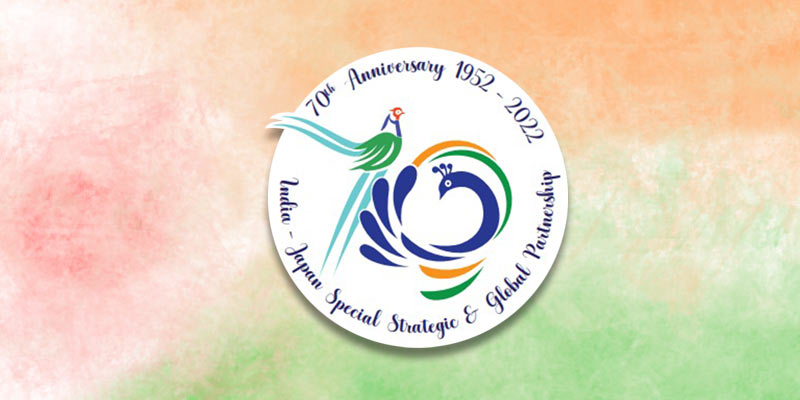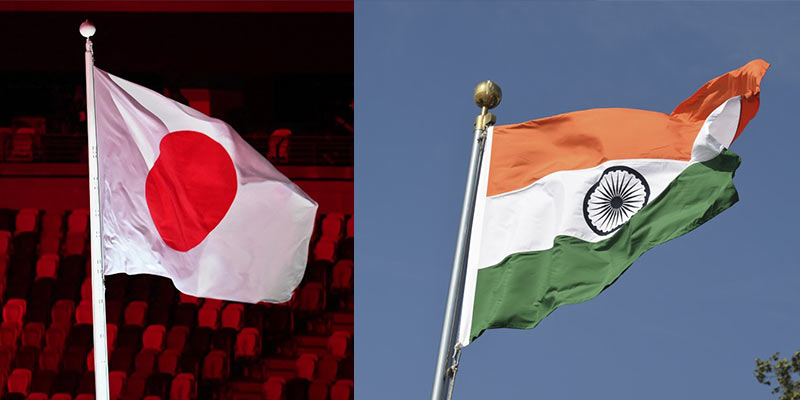- India
- Apr 28
Explainer / 70 years of India-Japan diplomatic ties
• On the 70th anniversary of the establishment of diplomatic relations between India and Japan, Prime Minister Narendra Modi said that the ties between the two countries have deepened in every sphere, be it strategic, economic or people-to-people contacts.
• India and Japan established diplomatic relations on April 28, 1952.
• The recent visit to India by Japanese Prime Minister Fumio Kishida for the annual summit laid out a roadmap for deepening the Special Strategic and Global Partnership between the two countries in a post-COVID world.
• The Japanese PM had announced an investment target of $42 billion (Rs 3,20,000 crore) in India over the next five years as the two sides concluded a raft of agreements and collaborations to further expand their partnership.
India-Japan relations
• Following World War II, India did not attend the San Francisco Conference in 1945 but decided to conclude a separate peace treaty with Japan in 1952 after its sovereignty was fully restored, marking a defining moment in the bilateral relations and setting the tone for the future.
• In 1991, Japan was among the few countries that bailed India out of the balance of payment crisis.
• The visit of the Japanese PM Yoshiro Mori to India in 2000 led to a significant and qualitative shift in India-Japan relations with the establishment of the ‘Global Partnership’ between the two sides. The transformation of ties with Japan were provided further fillip by the decision to have annual summits between the prime ministers commencing 2006 when both sides established ‘Strategic and Global Partnership’.
• In 2014, both sides upgraded bilateral relations to ‘Special Strategic and Global Partnership’.
• Apart from the annual summits, the annual Foreign Minister level Strategic Dialogue, Defense Ministers Meeting, NSA-level Dialogue, Ministerial level 2+2 and FOC Consultations and other bilateral dialogue mechanisms ensure regular high level and functional engagements.
• Japan has been extending bilateral loan and grant assistance to India since 1958 and is the largest bilateral donor for India.
• Japanese official development assistance (ODA) supports India’s efforts for accelerated economic development particularly in priority areas like power, transportation, environmental projects and projects related to basic human needs. Japan continues to be India’s largest donor of bilateral ODA, with an ODA commitment of approximately $3.7 billion in 2019-20.
• The Mumbai-Ahmedabad High Speed Rail, the Western Dedicated Freight Corridor (DFC), the Delhi-Mumbai Industrial Corridor with twelve industrial townships, the Chennai-Bengaluru Industrial Corridor (CBIC) are all mega projects assisted by Japan.
• In view of synergies and complementarities between the two nations, India-Japan Digital Partnership (I-JDP) was launched in October 2018 furthering existing areas of cooperation as well as new initiatives.
• On the economic front, Japan continues to be a key partner in India’s growth and socioeconomic development. In the recent past, the India Japan relationship has transformed to a partnership of great substance and purpose. Japan’s interest in India is increasing due to a variety of reasons including India’s large and growing market and its resources, especially the human resources.
• In September 2020, the two countries signed the Agreement on Reciprocal Provision of Supplies and Services between the Self-Defence Forces of Japan and the Indian Armed Forces (so called “Acquisition and Cross-Servicing Agreement” or ACSA). The agreement will help in enhancing cooperation in the areas of maritime security and maritime domain awareness.
• Both sides conduct bilateral military exercises. The fifth edition of JIMEX, between the Indian Navy and the Japan Maritime Self-Defence Force, was held in Arabian Sea in October 2021. The third edition of bilateral military exercise — Dharma Guardian — between Indian and Japanese Armies was conducted in Karnataka in March 2022.
• India and Japan are part of the Quad, or the Quadrilateral Security Dialogue. It is an informal grouping of four countries — Australia, India, Japan and the United States.
Manorama Yearbook app is now available on Google Play Store and iOS App Store


